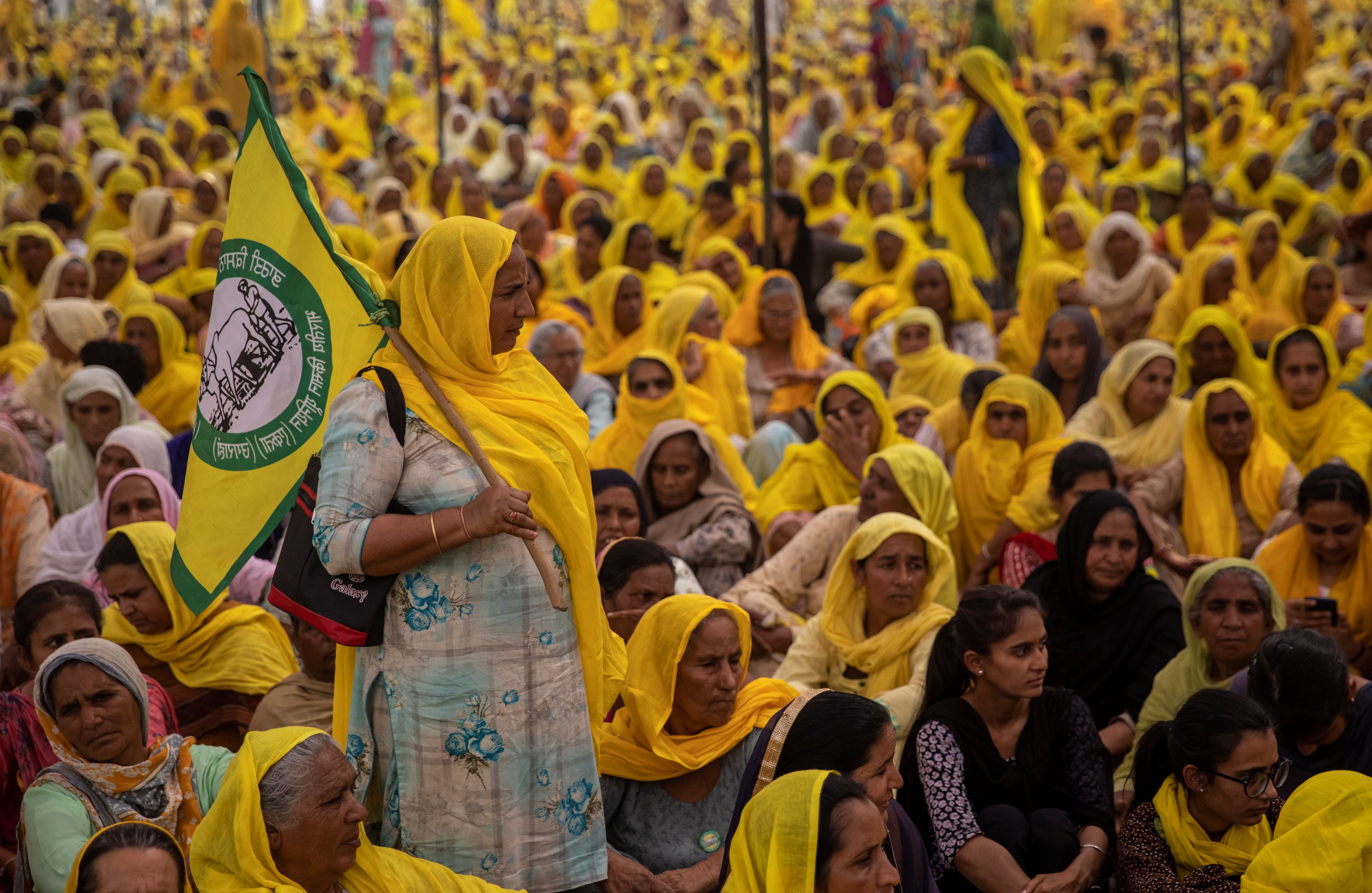Women turn out in huge numbers to support India’s farmer protests on International Women’s Day
About 85 per cent of women living in rural India work in agriculture, but only 13 per cent of them own land

Your support helps us to tell the story
From reproductive rights to climate change to Big Tech, The Independent is on the ground when the story is developing. Whether it's investigating the financials of Elon Musk's pro-Trump PAC or producing our latest documentary, 'The A Word', which shines a light on the American women fighting for reproductive rights, we know how important it is to parse out the facts from the messaging.
At such a critical moment in US history, we need reporters on the ground. Your donation allows us to keep sending journalists to speak to both sides of the story.
The Independent is trusted by Americans across the entire political spectrum. And unlike many other quality news outlets, we choose not to lock Americans out of our reporting and analysis with paywalls. We believe quality journalism should be available to everyone, paid for by those who can afford it.
Your support makes all the difference.As the world marked International Women’s Day on Monday, nearly 20,000 women gathered on the outskirts of India’s capital to extend their support to the months-long farmer protests.
Dressed in bright yellow scarves representing the colour of mustard fields, the women held demonstrations at multiple sites around Delhi, as they joined sit-ins and engaged in hunger strikes.
The protesting farmers have been camped at the border of the city for over 100 days now, demanding the repeal of a trio of new laws designed to reform the agriculture sector and open it up to greater privatisation. The government says the changes will benefit farmers, but unions fear they could take away the protections provided by state-run markets.
While the new laws were passed in February, the demonstrations began in earnest on 25 November last year when thousands of farmers, mostly from the northern states of Punjab and Haryana, marched on the capital to blocked several major arterial roads.
Many rounds of talks with the Narendra Modi-led government have so far failed to break the deadlock, and thousands of women arrived at the camps on Monday determined to use International Women’s Day to show their continued support for the protest movement.
“This is a day that will be managed and controlled by women, the speakers will be women, there will be a lot of feminist perspectives brought in, and discussions on what these laws mean for women farmers,” said farm activist Kavitha Kuruganti. “It is one more occasion to showcase and highlight the contribution of women farmers both in agriculture in India as well as to this movement.”
“This is an important day as it represents women’s strength,” Veena, a 37-year-old from a farming family in Punjab, who shared only her first name to protect her identity, told Reuters. “I believe if us women are united, then we can achieve our target much quicker.”
"Women are sitting here, out in the open, in protest, but Modi doesn’t care. He doesn’t care about mothers, sisters, and daughters. He doesn’t care about women. That’s clear," Mandeep Kaur, a female farmer who traveled 1,100km (680 miles) from Chhattisgarh state to participate in the protests told the Associated Press.
The Modi government says the new laws will remove middle-men traders from the process of selling farmers’ produce, allowing them to keep more money from sales and to market their wares to customers right across the country. The current system sees the majority of farmers sell their produce to local mandis or markets at a fixed price guaranteed by the state, regardless of fluctuations in supply and demand.
Mr Modi has committed to keeping this minimum price structure in place, but farmers still fear the changes will open them up to being exploited by private corporations.
The government, which has also sought to frame the protests as at least partially politically motivated, offered to suspend the new laws for 18 months for consultations. But the major farmer unions refused, saying they will accept nothing short of a complete repeal.
According to an Oxfam India report, more than 85 per cent of rural women in India are engaged in agriculture but only 13 per cent of women owned land.
Women farmers have as much at stake as men from the new laws, Ms Kuruganti said. “Markets that are distant as well as exploitative make single women farmers more vulnerable, and in any case, a patriarchal society has discriminated and made them vulnerable.”
Additional reporting from the agencies



Join our commenting forum
Join thought-provoking conversations, follow other Independent readers and see their replies
Comments